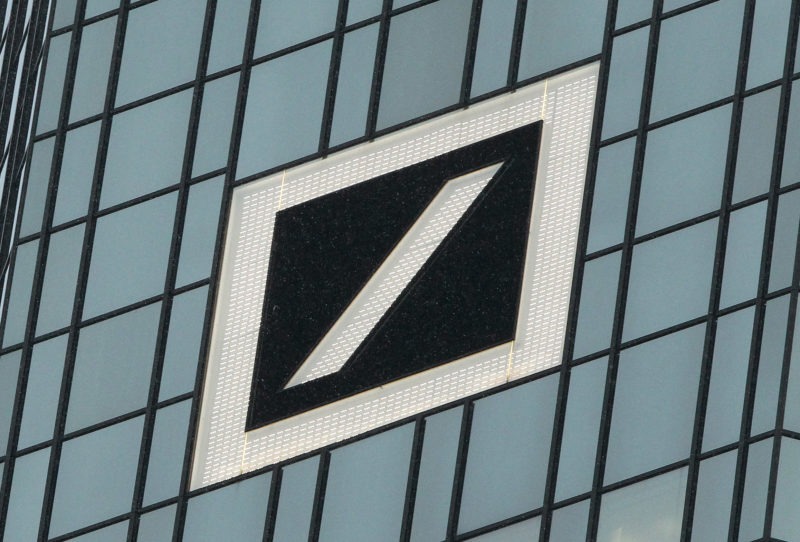Deutsche Bank headed for painful 2019 after Q3 loss
Costs related to cutting its workforce helped push Deutsche Bank into the red (Daniel ROLAND)
Frankfurt am Main (AFP) – Germany’s biggest lender Deutsche Bank appeared headed for a historic loss in 2019 Wednesday as a restructuring weighed on its third-quarter earnings, although bosses insist their harsh medicine is taking effect.
The group lost 859 million euros ($954 million) in July-September, down from a profit of 211 million last year.
That brought its net losses in the year to September to a whopping 3.9 billion euros.
And there is little sign of the cavalry arriving in the fourth quarter, as Deutsche continues to suffer from low interest rates, market volatility and its ongoing restructuring plan.
The consensus among economists surveyed by Bloomberg is that losses could grow to 4.3 billion euros by December 31.
“We’re planning and working towards a breakeven or a better year” in 2020, finance chief James von Moltke told reporters in a telephone conference.
Over the full year 2018, Deutsche scraped together a meagre profit of 300 million euros, following three successive years of losses.
Its worst-ever year came in 2016, when it lost 6.8 billion euros, mostly related to its investment bank’s activities in the years around the financial crisis.
– Shrinking investment bank –
Once the Deutsche flagship, the investment bank has since become a burden on the group.
It is planned to be hit most heavily in chief executive Christian Sewing’s restructuring plan announced in July.
Across the whole bank, around 18,000 staff — one-fifth of the total — are set to depart by 2022.
Share trading activities, which had turned unprofitable and required big capital reserves, have already fallen away at the investment bank.
But even the remaining activities, largely in bond trading and issuance and currency trading, saw profits fall 13 percent year-on-year in the third quarter.
Deutsche cannot at present compare with the glowing performances notched up by American rivals like JP Morgan or Goldman Sachs.
“You expect some degree of revenue loss when you’re involved in a significant repositioning of the company,” CFO von Moltke said.
Deutsche’s worldwide revenues also fell sharply in July-September, losing 15 percent to reach 5.3 billion euros.
– Profitable ‘core’ –
Despite the losses, chief executive Sewing highlighted that the so-called “core bank” of four businesses Deutsche plans to maintain into the future was profitable.
His reimagined lender should refocus its activities on Europe and its corporate bank, where it serves clients ranging from Germany’s “Mittelstand” small- and medium-sized firms to multinationals listed on the blue-chip DAX index.
Along with the retail banking and asset management arms, the corporate bank brings in steady earnings.
Across all four units — including the remainder of the investment bank — operating profit reached 353 million euros.
The investment bank’s operating result was down 73 percent year-on-year, at 64 million.
But the core unit’s solidity weighed little in the balance against the one-billion-euro loss suffered at a so-called “capital release unit” which is winding down assets the bank sees as non-strategic, like asset portfolios it manages for third parties.
By late September, the former colossus of the German banking industry numbered 89,958 full-time employees, 1,000 fewer than in June.
In its hunt to shave all possible expenses, it has even cancelled an annual Christmas party to which it usually invites past employees, a Deutsche spokesman confirmed to AFP.
Disappointed investors sent Deutsche’s stock plunging to the bottom of the DAX index, where it had lost 6.6 percent to trade at 6.74 euros around 12:20 pm (1120 GMT).
Disclaimer: Validity of the above story is for 7 Days from original date of publishing. Source: AFP.


